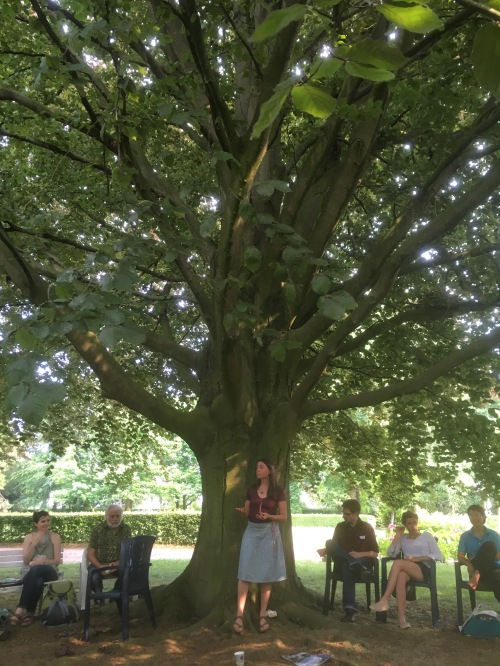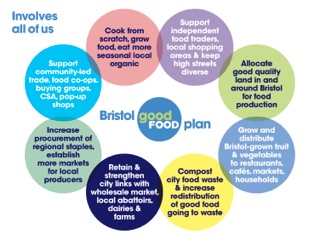
Tesco Real Food is the name of of Tesco’s recipe magazine and website, Tesco.com/realfood.
Launched by Tesco PLC in 2011, the magazine is given away free by Tesco six times a year as a marketing promotion (see pic above).
Tesco sells real food in the sense it is tangible, not imaginary. But Tesco food is not what this Real Food Lover calls real food.
I have had this definition on my Real Food Lover blog since 2008.
“What do I mean by real food? As close to nature as it can get. I want mine grown organically – without chemicals and with respect, as close to my home as possible. And wholefoody and unprocessed too, please.”
Others have a similar definition.
The Real Food Festival says: “Real Food is all about great tasting, sustainably and ethically produced food.”
Real Foods, based in Edinburgh, has, for the last 30 years, sold: “healthy, natural, organic (real) food to the nation at affordable prices.”
In a blog post responding to Tesco’s recent use of the term “real food”, Real Foods writes: “… ‘real food’ is food from which the body can extract the maximum amount of nutrition with the minimum amount of waste; food in its most natural state with the best bits still left in rather than foods that have been processed so that the goodness has been removed and replaced by chemicals which, if not actually harmful, are nutritionally ’empty’.”
Like the efficient retailer it is, Tesco has done its consumer market research and understands the nation’s need for nourishment. The result is its Real Food marketing initiative. Will it help people eat real food?
The magazine promises 32 “seasonal” recipes on the front cover.
Out of Tesco’s three “Season’s Best” recipes, one features mangoes from Peru. Mangoes are not grown in this country. They can never be seasonal for the UK.
Ten out of the 32 “seasonal” recipes were puddings with no fresh produce at all. Some were for Valentine’s day, Pancake day and Mother’s day. Are these annual celebrations what Tesco means by “seasonal”?
If so, Tesco has misunderstood the importance of seasonal for real food lovers.
Eating seasonally is about enjoying freshly-harvested produce. The fresher and more seasonal the produce is, the more nutrients it has and the better it tastes. That is one of the (many) reasons why local is important because it means the food is fresher when you eat it.
Tesco Real Food magazine’s current issue invites readers to Love Local and check out online its “wide variety of food from local producers around the UK”.
I checked out Tesco.com/local with my Bristol postcode and was directed to the Gloucestershire region. I was offered only eight products, four of which were beer. Yes, all good local produce, including Pieminister pies and cold-pressed rape seed oil.
But eight products do not a local-food-supply-chain make.
Like most supermarkets, Tesco sources globally not locally.
This article on apples gives us a clue.
According to the Telegraph, at the height of the UK apple-growing season in 2010, Tesco sourced only ten per cent of apples from Britain. The rest were imported. However its billboard ads promised ten different British varieties (subject to availability).
I get the feeling Tesco likes using words such as real and seasonal and local and organic because they sound good. But does Tesco subscribe to the principles and practices that underpin these words?
Tesco Real Food magazine’s current issue has an advertising feature for Tesco Organic. It says organic produce is grown “with reduced reliance on fertilisers”.
This is incorrect. Let me explain. Natural fertilisers – such as composted green and animal manures, and nitrogen-rich crops – are crucial to organic farming. This is how the soil is nourished.
On the other hand, chemical fertilisers are banned in organic farming because they strip the soil of life and cause environmental damage including water pollution.
Tesco’s Organic range is truly organic, and I am not questioning that [added after publication for clarification]. But does Tesco understand organic farming methods? Or is it using organic to make Tesco’s other products – such as intensively-farmed chickens – seem more wholesome?
Here is another example of the mismatch between Tesco Real Food and the reality of Tesco food.
As far as I know (please tell me I am wrong) Tesco still sells foods with trans fats despite a promise to ban them by 2011. Trans fats may make food last longer, but they are essentially candle-wax with huge health risks.
Trans fats are not real food. In fact, they are not even food.
Tesco’s Real Food magazine is glossy, handbag-size and beautifully-presented. In thick bold type, it emphasises words such as “nutritious” and “soul-warming”.
Is Tesco Real Food the marketing version of trans fats, a cheap filler that tricks us into thinking we’ve been nourished?
Real food producers can tell you exactly what is in their food: how and when and where it was grown, reared, produced and processed – how the land was fertilised, and the farm animals cared for.
Why is Tesco spending its marketing millions pretending to be real?



0.000000
0.000000




















